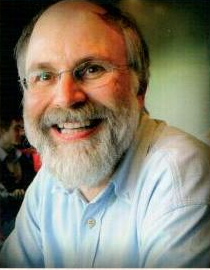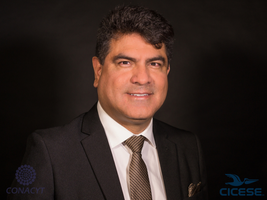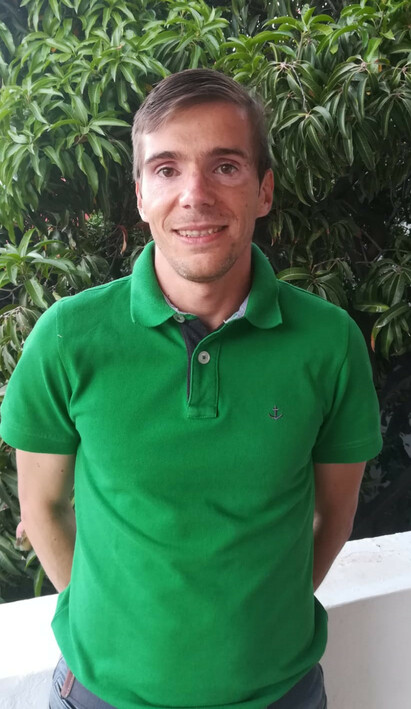Confirmed speakers
 |
|
 |
|
 |
|
 |
Title: Evolution Sometimes Needs Guidance
Abstract: Evolutionary computation prides itself with taking inspiration from natural evolution. But often a selective modelling approach has been used in the past that has shut out important natural phenomena from being considered essential to the process. We argue to follow the example of nature more closely, an approach we term 'computational evolution'. Here we discuss one of those issues in more detail: Variations are not totally random in nature. Instead, the process of variation follows pre-described paths. We discuss some of this evidence and its usefulness in applications by creating EC approaches that resemble more closely its natural example.
Website: www.cse.msu.edu/~banzhafw
Short bio: Wolfgang Banzhaf obtained his doctorate in physics from the Technical University of Karlsruhe (now Karlsruhe Institute of Technology). From 1993 he has taught computer science and engineering in his native Germany and in Canada. Since 2016, he has been a professor of computer science at Michigan State University in East Lansing, where he holds the John R. Koza Chair in Genetic Programming. He is the author of 3 books and more than 200 articles in bio-inspired computing, complex adaptive systems, neural networks, artificial life and evolutionary computing. His best-known works are Genetic Programming (1998), Linear Genetic Programming (2007), and Artificial Chemistries (2015), written together with his students and collaborators.
Title: Brain Programming Vs. Neuroevolution Visiting the Old Fight Between Symbolic and Sub-symbolic Learning
Abstract: The old fight between Symbolic and Sub-symbolic approaches to artificial intelligence (AI) is not over yet. This friendship/rivalry between researchers of both methods sometimes has turned into a love/hate dilemma. Indeed, the quest for AI captured the imagination of researchers with interest in copying nature to produce intelligent agents. In this talk, we review the history of artificial intelligence regarding symbolic and sub-symbolic paradigms. This setup helps us understand how/why symbolic reasoning was once the masterpiece of AI; it now seems to be void of meaning compared to deep learning. In contrast, neuroevolution attempts to enter the deep-learning revolution still have to prove their value. In this talk, we briefly survey the main points to
differentiate the pros and cons of both strategies as research opportunities in this new era of artificial intelligence. Brain programming opens new opportunities to look for solutions to the plethora of challenges that current sub-symbolic research solves in multiple fields. We conclude with a list of research opportunities and reflect on the main task in artificial intelligence.
Short Bio: Gustavo Olague received the B.S. and M.S. degrees in industrial and electronics engineering from the Instituto Tecnológico de Chihuahua (ITCH), in 1992 and 1995, respectively, and the Ph.D. degree in computer vision, graphics, and robotics from the Institut Polytechnique de Grenoble (INPG) and the Institut National de Recherche en Informatique et Automatique (INRIA) in France. He is currently a Professor with the Department of Computer Science, Centro de Investigación Científica y de Educación Superior de Ensenada (CICESE), México, and also the Director of the EvoVisión Research Team. He is also an Adjunct Professor of engineering with the Universidad Autonóma de Chihuahua (UACH). He has authored over 100 conference proceedings papers and journal articles, co-edited special issues in Pattern Recognition Letters, Evolutionary Computation (MIT Press), and Applied Optics (OSA). He has authored the book Evolutionary Computer Vision (Springer) in the Natural Computing Series. His main research interests are evolutionary computing and computer vision. He is a member of the Editorial Team of the IEEE Access, Neural Computing and Applications (Springer), and served as the Co-Chair of the Real-World Applications track at the main international evolutionary computing conference, GECCO (ACM SIGEVO Genetic and Evolutionary Computation Conference), in 2012 and 2013.
He has received numerous distinctions, among them the Talbert Abrams Award–first honorable mention 2003–presented by the American Society for Photogrammetry and Remote Sensing (ASPRS) for authorship and recording of current and historical engineering and scientific developments in photogrammetry; Best Paper Awards at major conferences such as GECCO, EvoIASP (European Workshop on Evolutionary Computation in Image Analysis, Signal Processing, and Pattern Recognition), and EvoHOT (European Workshop on Evolutionary Hardware Optimization); and twice the Bronze Medal at the Humies (GECCO award for Human-Competitive results produced by genetic and evolutionary computation).
3) Carlos Segura
Title: Design of Population-based Optimizers: Diversity, Data Structures and Algorithms
Asbract: In this talk I will describe some key topics in the proper design of population-based optimizers, including issues that are problem-dependent, as well as problem-independent features. The importance of mastering Data Structures and Algorithms will be shown by describing some of the optimizers that have been developed in recent years at CIMAT and that have won some international competitions, such as the extended round of Google Hash Code 2020. Several algorithms that hold currently the best-known solutions for various optimization problems are discussed.
Short Bio: Carlos Segura was born in Santa Cruz de Tenerife, Spain. He received the M.S. degree in computer science from the Universidad de La Laguna, in 2009 and the Ph.D. degree in computer science from the Universidad de La Laguna, in 2012. He has authored and co-authored over 75 technical papers and book chapters, including more than 25 journal papers. His publications currently report over 900 citations in Google Scholar. He serves in the editorial board of several international conferences and was the chair of the Genetic Algorithms Track in the Genetic and Evolutionary Computation Conference 2020 and 2021. His main research interests are: design of evolutionary algorithms, diversity management and problem solving paradigms. He has been part of the winning team of several optimization-oriented competitions, such as the extended version of the Google Hash Code 2020 and the Parameterized Algorithms and Computational Experiments Challenge 2018. He is currently an Associate Researcher of the Computer Science area at the Center for Research in Mathematics (CIMAT).
Title: A history of Metaheuristics
Abstract: The field of (meta)heuristics is still young, which is surprising given the fact that people have been using heuristics (and even metaheuristics) to solve optimization problems since the dawn of humanity. In this talk, we investigate the history of the field of metaheuristics, starting a long time in the past, and passing through several paradigm changes. We end with an outlook at the future of the field of (meta)heuristics.
Short Bio: Kenneth Sörensen is full professor at the Faculty of Business and Economics of the University of Antwerp, where he chairs the ANT/OR - University of Antwerp Operations Research Group. His research focuses on innovative applications of operations research and on the study of heuristic optimization algorithms.

